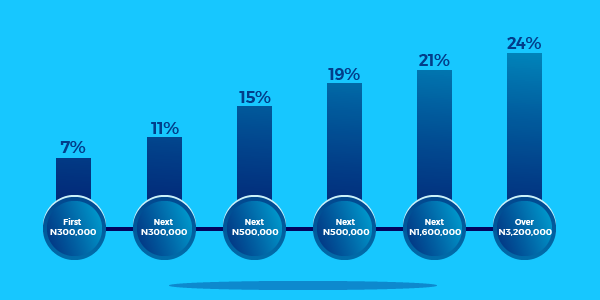Introduction
The relationship between taxation, ethics, and economic development is a critical area of study, particularly in the context of developing nations like Nigeria. This article explores how Islamic principles regarding ethics and taxation can significantly impact Nigeria’s economic development. Drawing from Almustapha A. Aliyu, Mohammed Yusuf Alkali, and Ibrahim Alkali’s work, the analysis focuses on the theoretical underpinnings and practical implications of adopting an Islamic tax system in Nigeria.
Theoretical Foundations of Islamic Taxation
Islamic taxation, rooted in Sharia law, diverges markedly from conventional tax systems due to its ethical and religious foundations. The primary form of Islamic tax is Zakat, one of the five pillars of Islam, which mandates Muslims to contribute a portion of their wealth to assist the poor and needy. This system embodies a moral obligation rather than a mere legal requirement, intertwining religious duty with socio-economic responsibilities.
The ethical framework of Islamic taxation is deeply embedded in the Quran and the Hadith. The Quran emphasizes justice, equity, and the moral duty of Muslims to support less fortunate members of society (Quran 49:13). The Prophet Muhammad (PBUH) also highlighted the significance of high ethical standards, praying for guidance to uphold good morals and avoid unethical behavior.
Impact of Islamic Ethics on Tax Compliance
Ethics play a pivotal role in shaping individuals’ attitudes towards tax compliance. In Islam, tax evasion is considered both illegal and unethical, undermining the system’s purpose of wealth redistribution and social welfare. The intrinsic motivation derived from religious beliefs can enhance voluntary tax compliance among Muslims, thereby reducing the incidence of tax evasion. Ethical behavior in tax matters, as prescribed in Islamic teachings, fosters a culture of accountability and social responsibility.
Historical Context of Taxation in Northern Nigeria
Historically, Northern Nigeria had a well-organized system of Islamic taxation before the colonial era. The region’s administration, led by Emirs, imposed various forms of taxes such as Zakat, Gada, Kindi, Jangali, and Karata, which facilitated effective community management and welfare distribution. The British colonial administration leveraged this existing structure to introduce new tax systems, which eventually overshadowed the indigenous Islamic tax practices.
Current Nigerian Tax Environment
Nigeria’s reliance on oil revenue has overshadowed other potential revenue sources, including taxes. Before the discovery of oil, regional governments primarily depended on agricultural products and various forms of taxation to generate revenue. However, the modern tax system in Nigeria, influenced by British colonial policies, has largely neglected the Islamic tax system, especially in the Muslim-majority northern regions.
Potential Benefits of Reintroducing Islamic Taxation
Reintroducing Islamic taxation in Northern Nigeria could address several socio-economic issues. Firstly, it could enhance revenue generation through improved tax compliance driven by religious and ethical motivations. Secondly, it could reduce poverty and promote social justice by ensuring wealth redistribution to the needy, a core principle of Zakat. Countries like Malaysia, Indonesia, and Saudi Arabia have successfully utilized Islamic tax systems to support poverty alleviation and economic development.
Challenges and Considerations
Implementing an Islamic tax system in Nigeria poses several challenges. One significant issue is the lack of understanding and knowledge of Islamic tax principles among tax authorities and the public. Additionally, the complexity of interpreting and applying Sharia law to modern tax scenarios requires substantial resources and expertise. Furthermore, integrating Islamic taxes with the existing conventional tax system necessitates careful policy formulation to avoid conflicts and ensure cohesive administration.
Conclusion
The integration of Islamic ethics and taxation holds considerable promise for enhancing Nigeria’s economic development. By fostering a culture of ethical compliance and leveraging the principles of wealth redistribution inherent in Islamic law, Nigeria can potentially address its socio-economic challenges more effectively. The historical precedence and ethical imperatives of Islamic taxation provide a robust framework for policymakers to consider in their efforts to diversify revenue sources and promote inclusive growth.
Incorporating Islamic tax principles in Nigeria’s economic strategy could lead to a more equitable and sustainable development model, reflecting the nation’s cultural and religious diversity. As Nigeria continues to seek solutions to its economic challenges, the ethical and practical benefits of Islamic taxation merit serious consideration.










